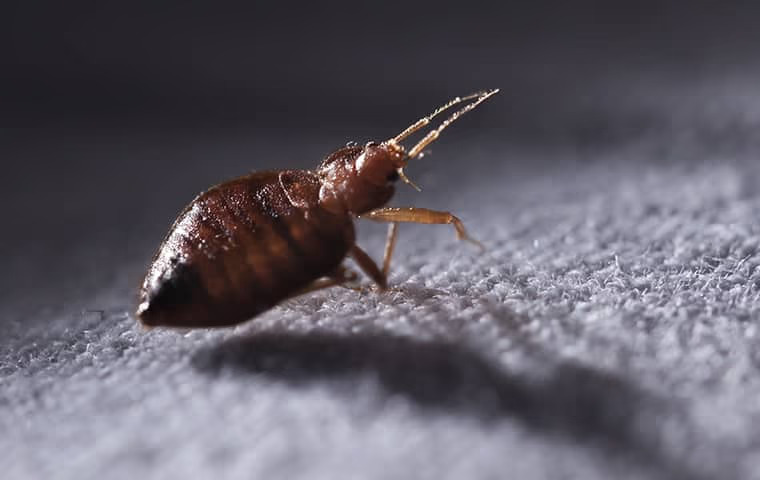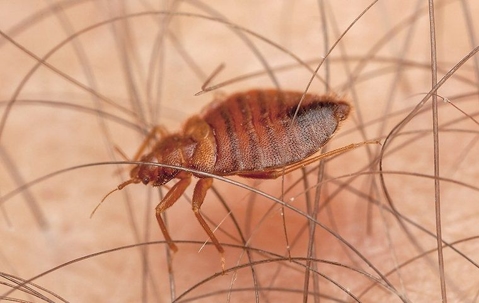Professional Kings Bug Control Cincinnati: Your Trusted Pest control experts
Professional Kings Bug Control Cincinnati: Your Trusted Pest control experts
Blog Article
Sorts Of Bug Control: Which Approach Is Right for Your Invasion?
When confronted with a parasite problem, the option of a proper method for pest control is essential in successfully handling the scenario. From chemical therapies to organic solutions, there exists a series of techniques that can be employed to deal with different kinds of bugs. Each approach comes with its very own collection of benefits and factors to consider, making the decision-making process a nuanced one. Comprehending the subtleties of each approach and assessing their compatibility with the specific bug infestation handy is essential for attaining long-term success in pest administration. By checking out the numerous kinds of bug control methods available, people can make enlightened choices customized to their one-of-a-kind scenarios, making certain a much more sustainable and efficient result in parasite eradication.
Chemical Bug Control
Chemical bug control involves the use of synthetic or normally obtained chemicals to handle and eliminate pest populaces successfully. This method is commonly used in farming, forestry, and property setups to fight a wide variety of insects, including rats, insects, and weeds. Using chemical pesticides can give fast and targeted solutions to pest invasions, making it a preferred choice for several people and companies.
Among the key advantages of chemical insect control is its capacity to promptly eliminate insects, decreasing the threat of damages to crops, residential property, and human wellness. By utilizing certain chemicals that target certain bugs, this approach can successfully regulate invasions while lessening harm to advantageous microorganisms and the setting when applied correctly.
Nonetheless, making use of chemical parasite control also increases worries about possible adverse results on non-target varieties, water sources, and human wellness. It is essential to adhere to security guidelines, use chemicals responsibly, and consider alternative parasite control approaches to minimize these risks and guarantee lasting parasite monitoring methods.
Biological Insect Control
Biological pest control, additionally known as biocontrol, utilizes living microorganisms to handle and lower parasite populations normally. By utilizing the insect's all-natural predators or pathogens, organic parasite control uses a environmentally pleasant and sustainable remedy to pest administration.

Mechanical Bug Control
Using hand-operated and physical approaches to handle parasite populations, mechanical pest control uses an alternative technique that does not count on using living organisms or synthetic chemicals. This technique involves making use of obstacles, traps, or other tools to literally discourage or remove bugs. By blocking parasite entrance factors or establishing catches to catch them, mechanical insect control can efficiently reduce problems without introducing chemicals into the atmosphere.
One common instance of mechanical insect control is the use of mesh screens on windows and doors to avoid bugs from getting in structures. This easy yet reliable approach works as a physical obstacle, maintaining pests out while enabling proper air flow. Additionally, gadgets like mousetraps, fly swatters, and ultrasonic repellents drop under the mechanical insect control category.
While mechanical bug control approaches can be labor-intensive and need routine surveillance and maintenance, they supply a sustainable and eco-friendly remedy for managing pest invasions. By combining various mechanical methods, homeowner can produce a detailed parasite control strategy that lessens reliance on chemical pesticides.
Physical Bug Control

Some usual physical pest control approaches include using obstacles such as screens or internet to avoid insect entrance, catches to catch and remove parasites, and hand-picking to physically remove pests from plants or frameworks. In addition, methods like heat therapies can be made use of to control parasites like bed insects by increasing the temperature level to levels that are dangerous to the insects.
Physical bug control is especially beneficial in integrated parasite monitoring (IPM) techniques, where numerous parasite control approaches are combined for efficient parasite monitoring while minimizing the usage of chemicals. By using physical parasite control techniques, people can efficiently resolve insect problems with minimal ecological impact.
Integrated Parasite Administration
When executing physical pest control approaches as component of bug monitoring methods, Integrated Parasite Administration (IPM) becomes a comprehensive technique that leverages numerous strategies to effectively control pest populations. IPM concentrates on lasting prevention of parasites through a mix of biological, social, physical, and chemical devices tailored to certain bug problems. By integrating numerous control techniques, IPM aims to reduce the dangers related to parasites while also minimizing dependence on chemical services.
One key facet of IPM is the focus on monitoring and assessing pest populaces to figure out the most proper control approaches. This positive technique enables early intervention and targeted strategies, causing a lot more reliable insect administration. Additionally, IPM advertises ecologically friendly practices by focusing on non-chemical control techniques and just using pesticides as a last hope.
Conclusion

By utilizing official statement the parasite's natural predators or microorganisms, biological pest control uses a sustainable and eco pleasant remedy to pest monitoring. - Kings cincinnati pest control companies
Using physical and hand-operated approaches to manage bug populations, mechanical parasite control uses an alternate strategy that does not depend on the use of living microorganisms or artificial chemicals.An effective method to handling parasite populations without counting on chemical or organic techniques entails the usage of physical pest control techniques.When carrying out physical pest control methods as part of bug monitoring approaches, Integrated Pest Administration (IPM) emerges as a comprehensive technique that leverages numerous techniques to properly manage pest populaces. Chemical pest control entails the use of pesticides, organic pest control makes use of natural killers, mechanical pest control entails physical obstacles, physical parasite control includes capturing or removing bugs, and integrated pest monitoring integrates multiple approaches for an all natural method to pest control.
Report this page